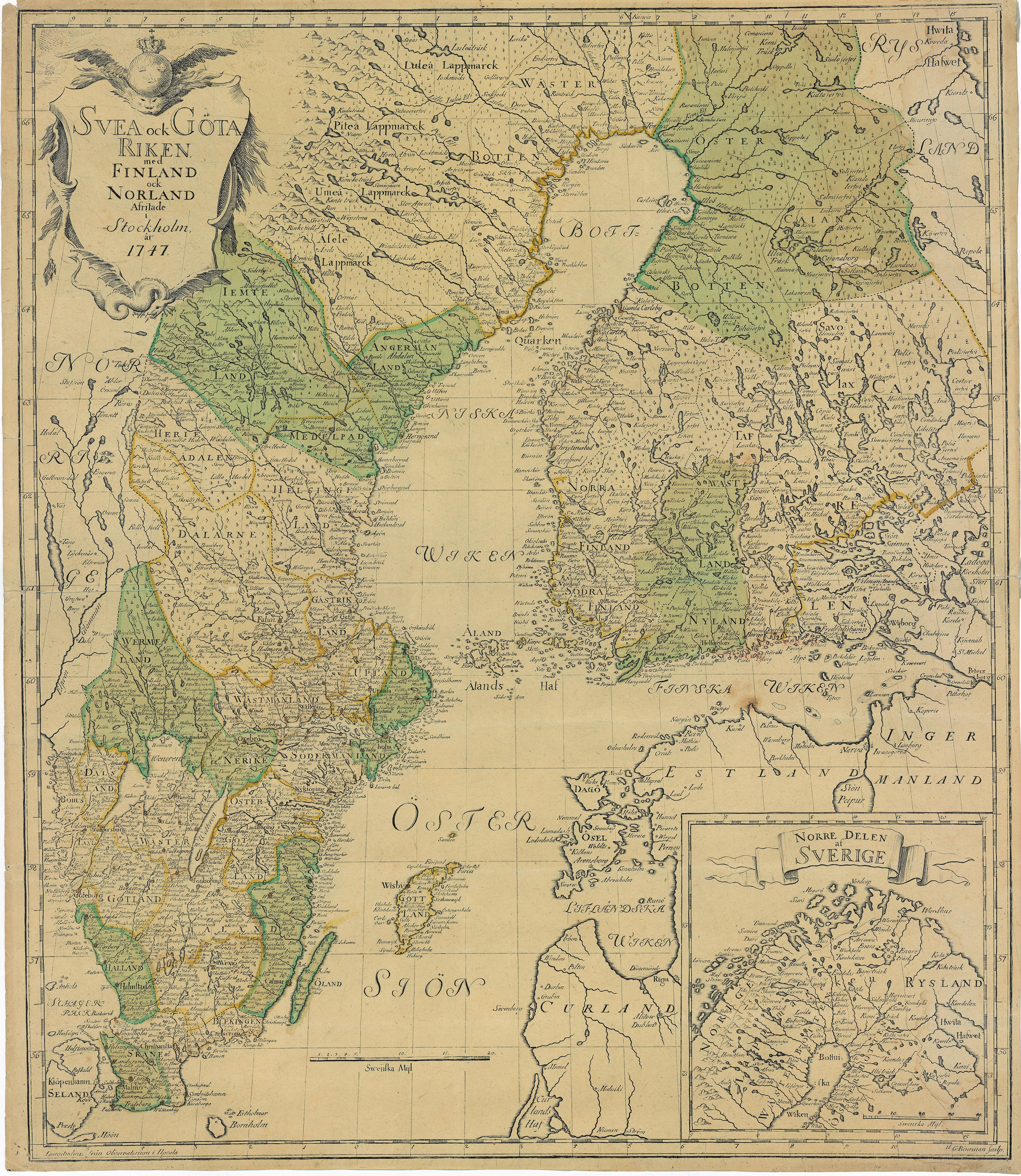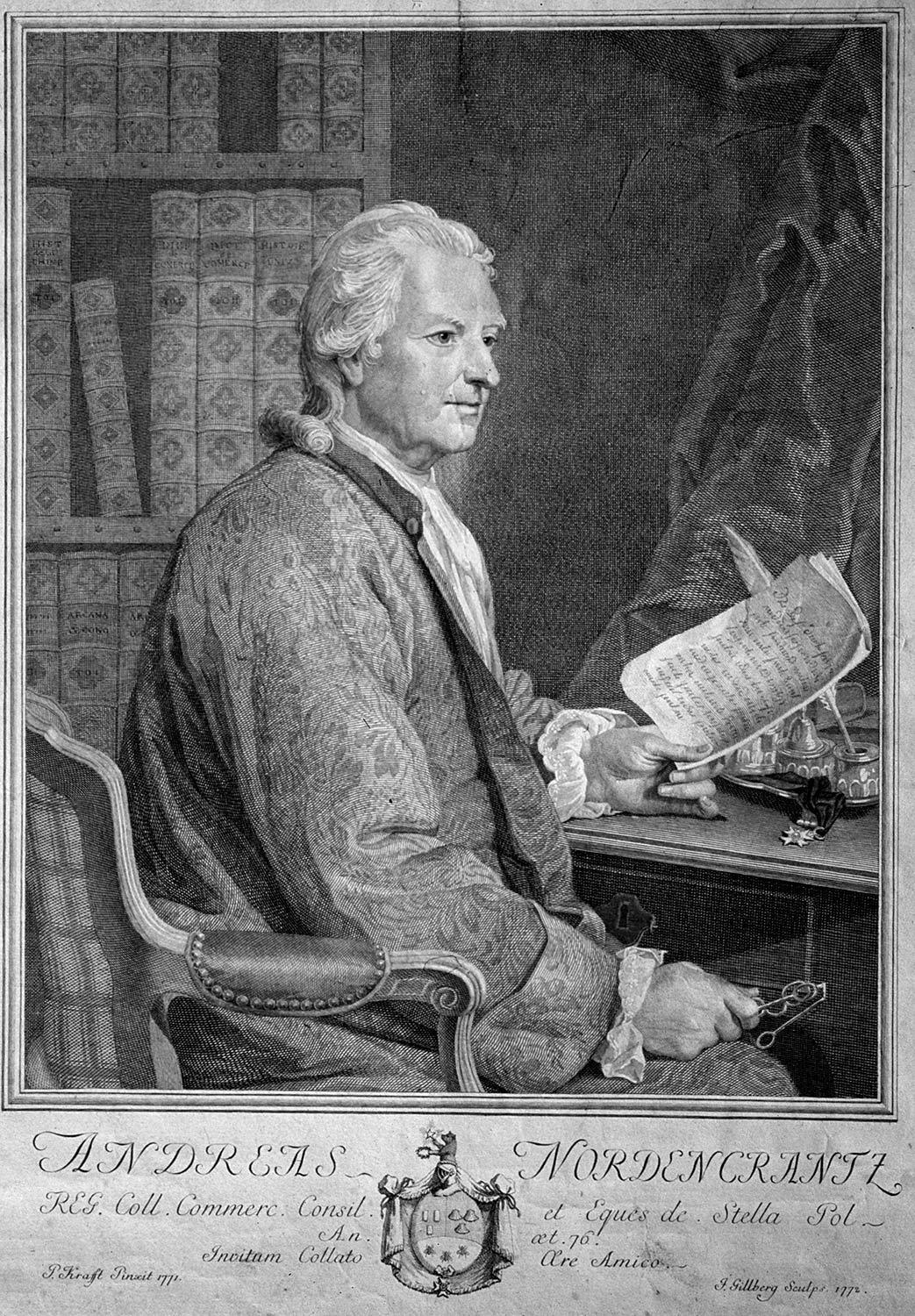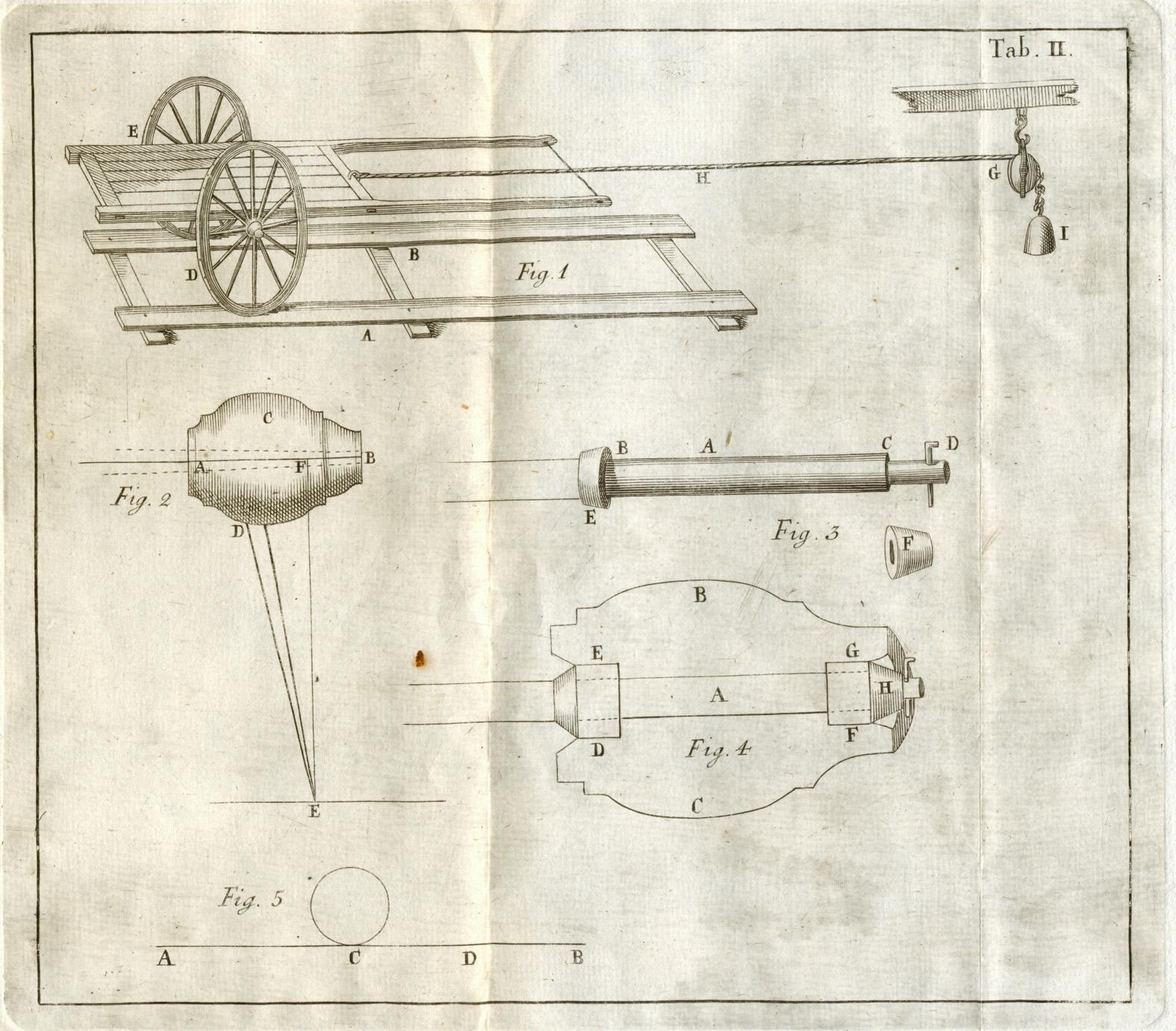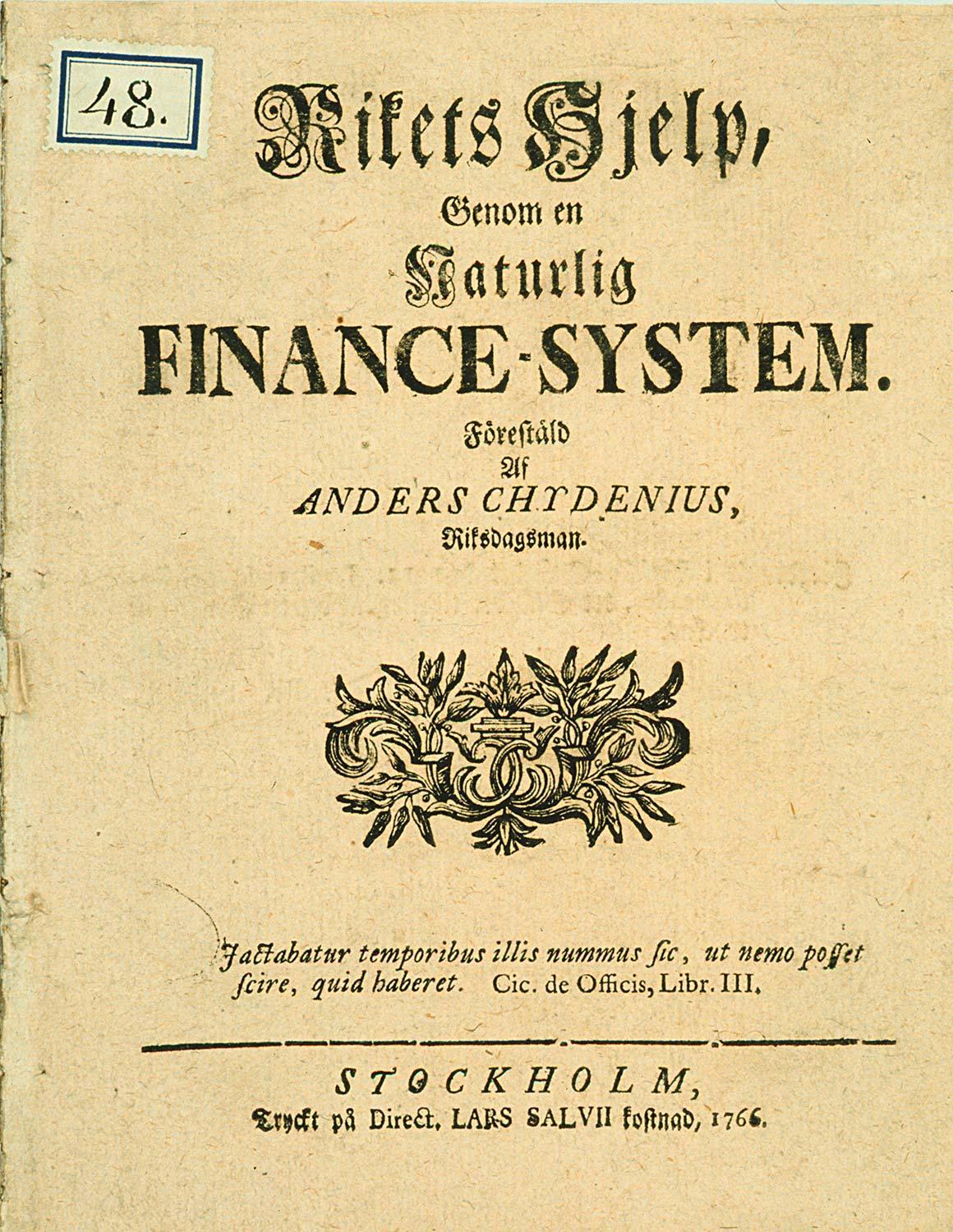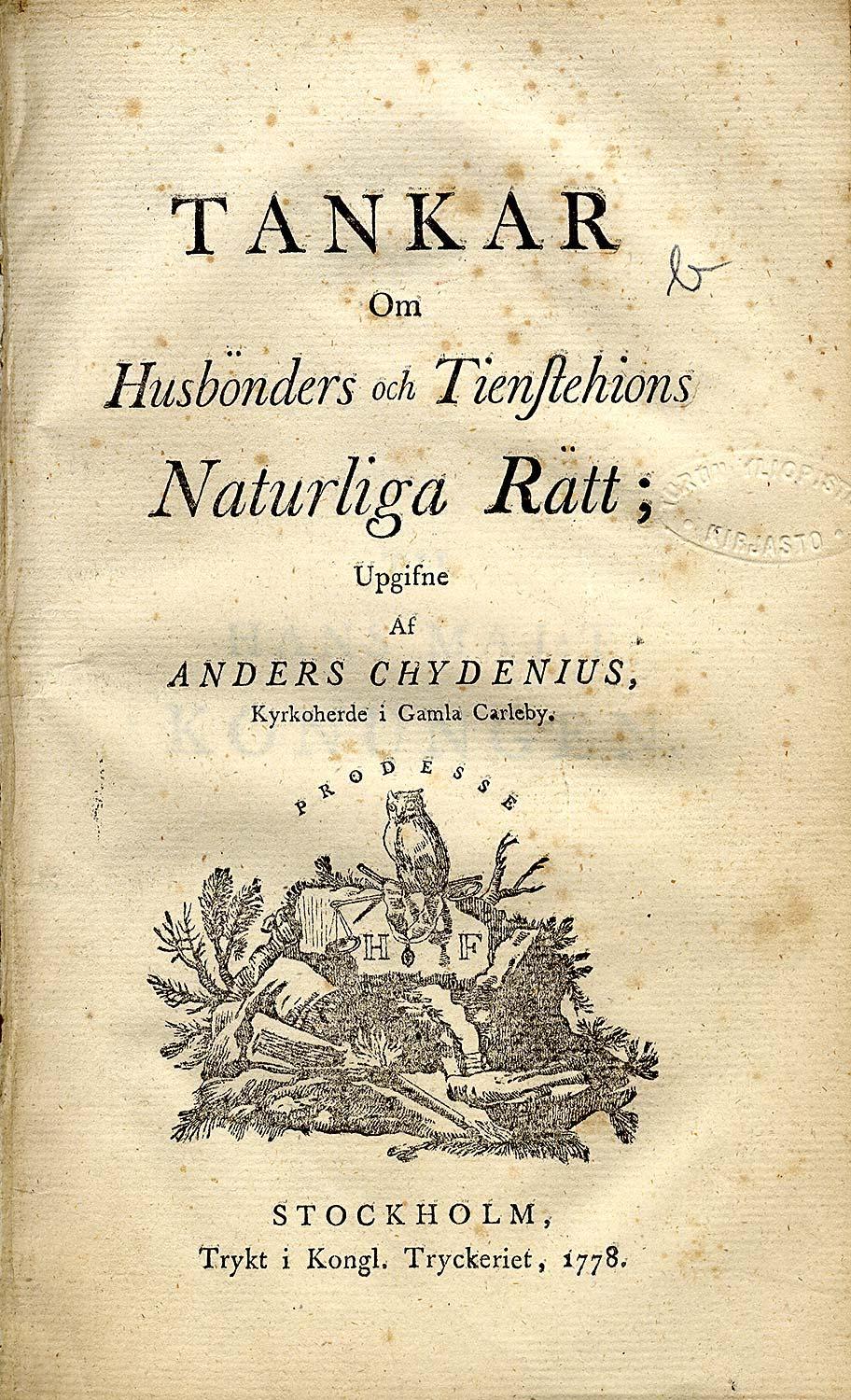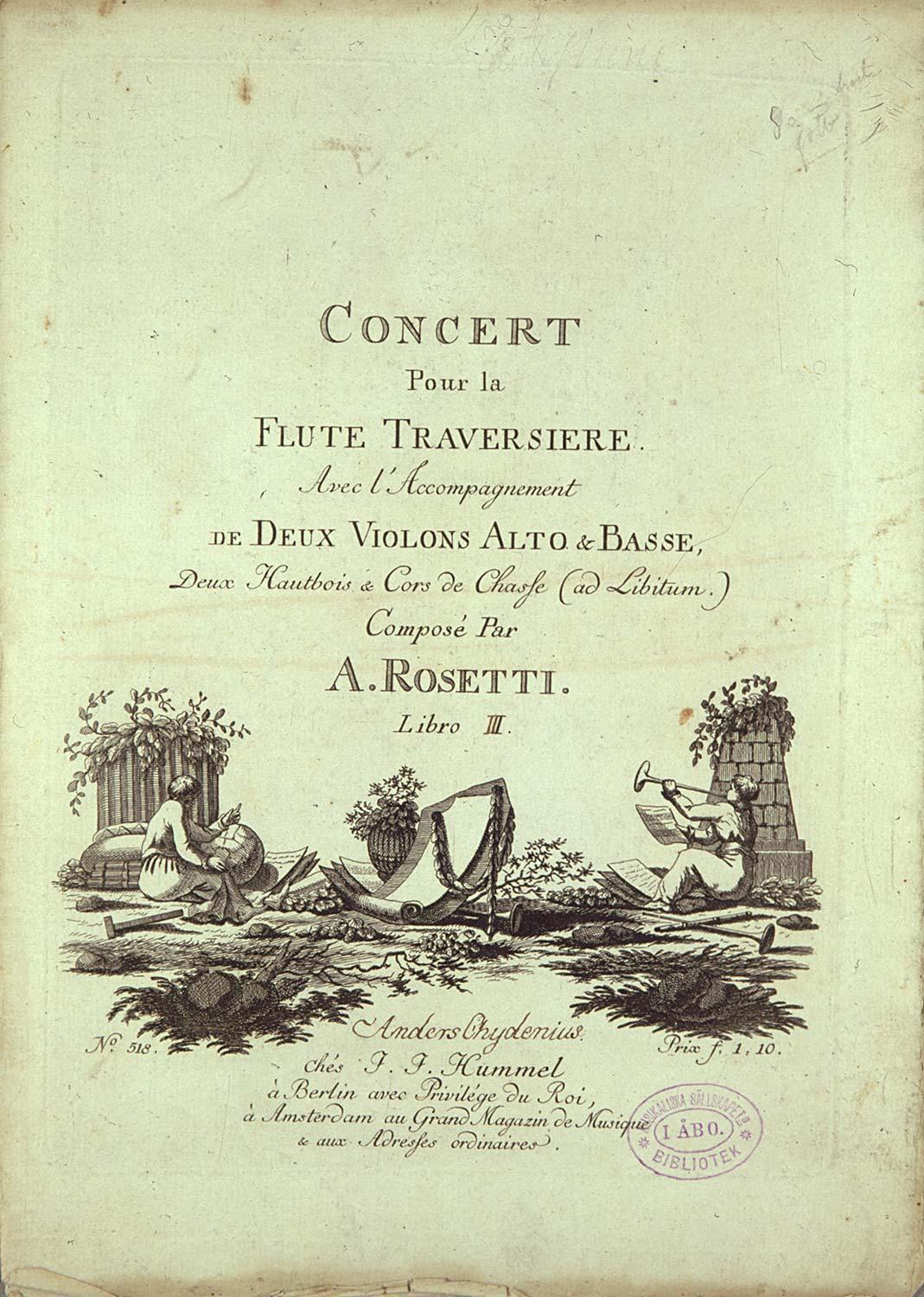Free Enterprise
The Source of Our Country’s Weakness
Soon after the commencement of the Diet, in the Spring of 1765, Anders Chydenius published his essay The Source of Our Country’s Weakness (Källan Til Rikets Wan-Magt), which criticized the Commodity Ordinance. The Commodity Ordinance, whose model was the Navigation Act of England, forbade foreign vessels from shipping anything but the produce of their own country into Sweden. Behind the statute was the mercantilist aim of limiting imports and strengthening the domestic merchant fleet. The Ordinance however primarily benefited export merchants and raised the price of imported produce, such as salt.
Many writers had criticized this restriction before; perhaps the most significant of them was the publisher Lars Salvius from whom Chydenius apparently gained the inspiration for his own essay. Although Chydenius did not really bring forward any new viewpoints, the style of his challenge aroused very great notice. Representatives of the merchants of Stockholm were the first to attack Chydenius.
The National Gain
 Acquaintance with the restrictions upon commerce and the controversy surrounding discussion of the issue, caused Chydenius to compose a theoretical essay, in which he clearly and briefly put forward the viewpoint on economic policy based upon free trade. The National Gain (Den nationnale winsten) was published in July 1765.
Acquaintance with the restrictions upon commerce and the controversy surrounding discussion of the issue, caused Chydenius to compose a theoretical essay, in which he clearly and briefly put forward the viewpoint on economic policy based upon free trade. The National Gain (Den nationnale winsten) was published in July 1765.
Chydenius’ message was straightforward: the less one tries to affect the economy by external restrictions or by means of subsidies, the better the economy will operate. If freedom of trade is chosen, a natural balance is born out of the acts of every producer, worker, consumer and trader in advancing his own interests, and this is also in the interest of the whole kingdom; the “national gain” is the greatest. The world of trade and industry is too complex and variable to allow a planned economy.
Chydenius was hardly the first to demand the realisation of liberty to pursue a trade in Sweden – for example baron Carl Leuhusen had brought forward concepts very close to the ideals of later economic liberalism. In its consistency and its single-mindedness however, Chydenius’ essay was unparalleled. The practical effect of Chydenius’ and others’ criticism was little – the basic lines of economic policy remained as before, and the mercantilist controls were abolished eventually for the main part in the nineteenth century.





